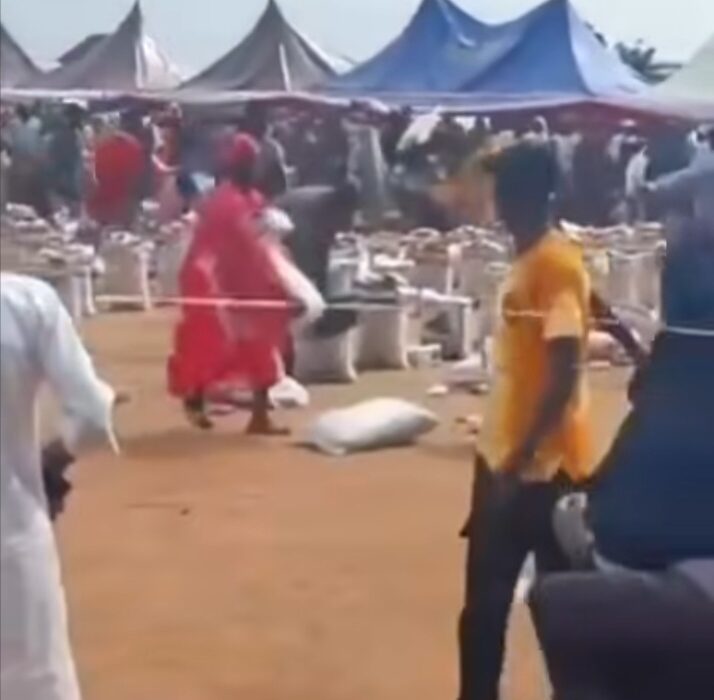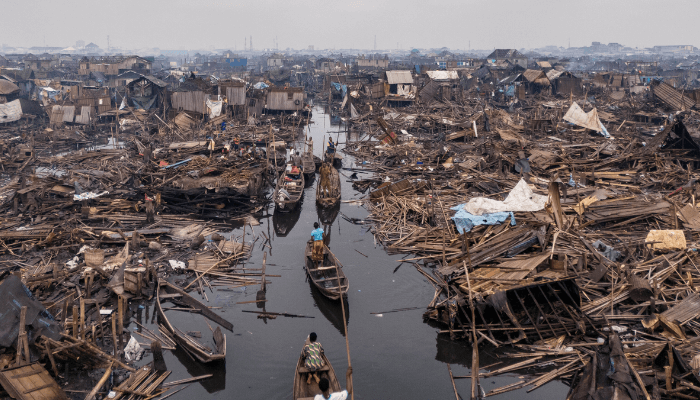Hunger Sparks Chaos as Suleja Residents Loot Relief Materials

A government-backed relief distribution turned tragic in Suleja, Niger State, on Sunday, August 31, when a desperate crowd of residents overpowered security officials and looted food supplies, leaving several people injured in the ensuing stampede.
Eyewitnesses said the incident occurred at an open field in the town, where residents had gathered from early morning to await the distribution of bags of rice, noodles, and other consumables.
The exercise, intended for low-income households, quickly descended into disorder after hours of waiting without clear coordination.
Videos widely shared online showed men and women scrambling, trampling over one another, while armed security operatives and civilian guards wielding sticks tried to restore order.
Some residents were seen scaling fences with looted items, as others lay injured on the ground.
“The crowd was too much and there was no arrangement. People became restless, and when the trucks came, everyone rushed at once. People fell down, others were stepping on them, and there was nothing the security could do,” said a resident who witnessed the incident.
The Niger State Emergency Management Agency (NSEMA) confirmed the incident and said steps were being taken to investigate the breakdown of order.
Officials assured that the aid programme would continue, but with tighter security and better coordination.
Sunday’s chaos highlights the worsening food insecurity in Nigeria, where soaring prices have left many households struggling to afford basic staples. According to humanitarian assessments, millions across northern Nigeria are at risk of hunger, with aid distributions often attracting massive, restless crowds.
Incidents of stampedes and looting at relief centres have been reported in Borno, Adamawa, and Yobe states in recent years, underscoring the difficulty of managing large-scale interventions in communities under economic strain.
Analysts say the Suleja incident reflects not only the desperation of residents but also gaps in planning and communication.
Without clear structures for crowd control, relief exercises risk turning into scenes of chaos that put lives at risk.
Local leaders have urged authorities to adopt community-based distribution channels, such as ward-level sharing through religious and traditional leaders, to avoid mass gatherings that often spiral out of control.
As of Monday, September 1, the number of those injured in the Suleja stampede had yet to be confirmed.
Security operatives have since been deployed to maintain calm while authorities review the process.








